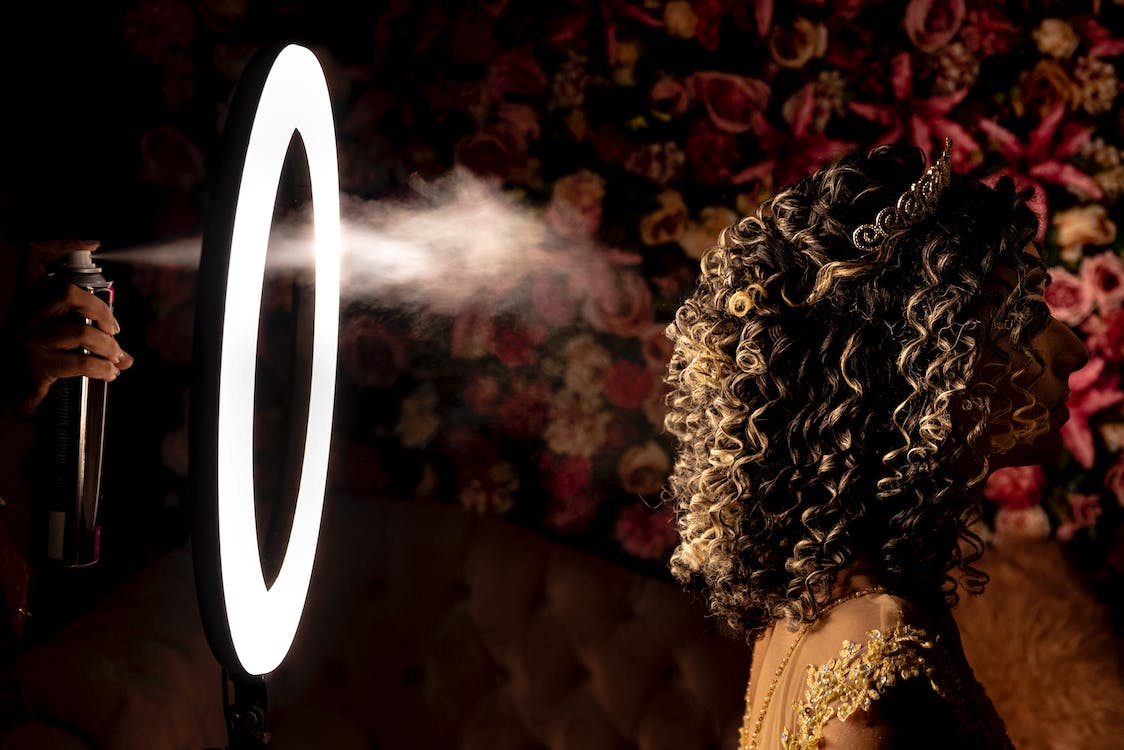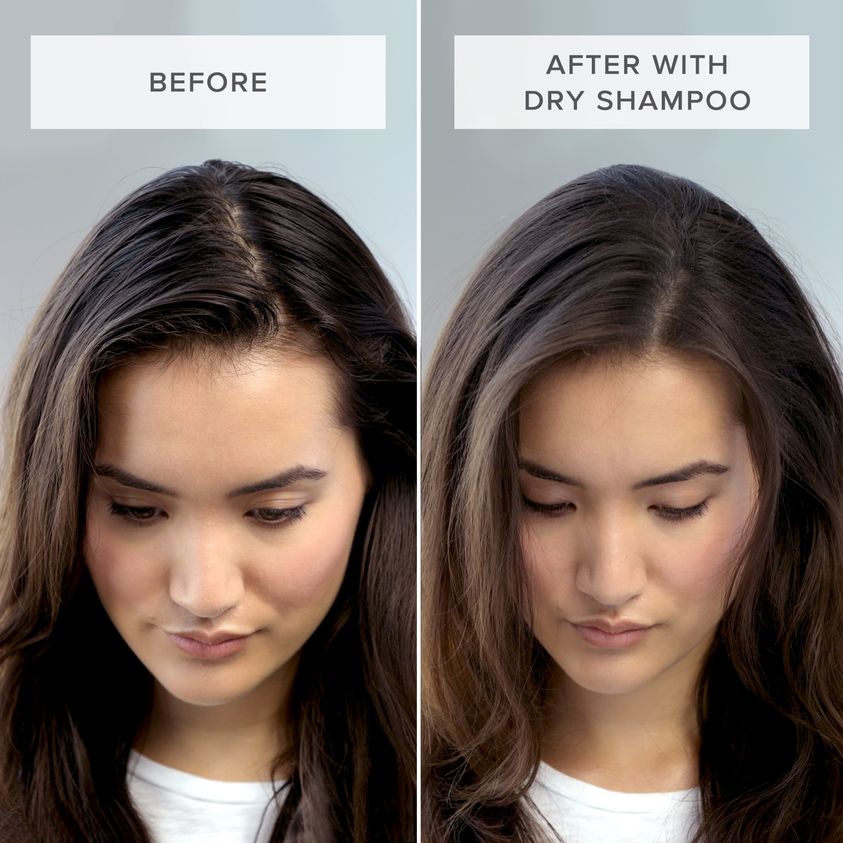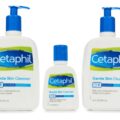What are dry shampoos?
Dry shampoos are hair care products that come in the form of a spray, powder, or foam and are used to clean and refresh hair without the use of water. They work by absorbing excess oil and grease from the scalp and hair, giving the appearance of freshly washed hair.
Dry shampoos are typically used as a quick fix for greasy or oily hair when there isn’t enough time or access to water to wash hair traditionally. They are also commonly used by people with fine hair, or those who color their hair, as frequent washing can strip hair of its natural oils and cause damage.
Dry shampoos come in a variety of formulations, including those made with natural ingredients like rice starch or oatmeal, and those that contain synthetic ingredients like talc or silicone. Some dry shampoos also contain fragrances or other ingredients designed to add volume or texture to the hair.
Dry shampoo has become a popular solution for keeping hair feeling fresh and clean between washes. Recently 12 CNN Underscored staffers were tasked with testing 21 different dry shampoos over the course of nearly a month. Testers with varying hair lengths, textures, types, and styles were selected to find shampoos that work across the spectrum. After thorough testing, three dry shampoos stood out for their effectiveness on any hair texture.
However, while shampoos can cleanse your hair and avoid oily locks in between shampooing it also comes with some health-related setbacks.
Do dry shampoos cause cancer?
Dry shampoos can cause cancer because most products contain benzene, a known cancer-causing ingredient. Benzene is classified as a Group 1 carcinogen by the International Agency for Research on Cancer (IARC), which means that it is known to cause cancer in humans.
Benzene exposure has been linked to the development of several types of cancer, including leukemia, lymphoma, and multiple myeloma. The risk of developing cancer from benzene exposure depends on several factors, including the duration and level of exposure, the route of exposure, and individual susceptibility.
Dry shampoos may also contain other potentially harmful ingredients or banned substances that could pose health risks over time. One of the main concerns with dry shampoo is the potential for inhalation of the product. If the product is sprayed too close to the face or in an enclosed space, it can be inhaled into the lungs, which can cause respiratory irritation or other health problems over time. Some dry shampoos may also contain ingredients such as talc or asbestos, which have been associated with an increased risk of certain types of cancer when inhaled.
To minimize the potential risks associated with dry shampoo, it is important to use the product as directed, avoid spraying it too close to the face, and use it in a well-ventilated area. Additionally, consumers can look for dry shampoos that are free from potentially harmful ingredients, such as talc or asbestos, and opt for products that have been tested and approved by reputable organizations such as the FDA or the Environmental Working Group.
List of cancer-causing dry shampoos
Recently several dry shampoo products were recalled due to high levels of benzene. A recent survey found that 70% of dry shampoos analyzed had cancer-causing agent above permissible levels. Among 148 batches from 34 different brands of dry shampoo products, 70% showed “quantifiable” levels of benzene.
Here is a list of such recalled products:
- Bed Head Dirty Secret Dry Shampoo
- Bed Head Oh Bee Hive Dry Shampoo
- Bed Head Oh Bee Hive Volumizing Dry Shampoo
- Bed Head Rockaholic Dirty Secret Dry Shampoo
- Dove Dry Shampoo Clarifying Charcoal
- Dove Dry Shampoo Detox and Purify
- Dove Dry Shampoo Fresh and Floral
- Dove Dry Shampoo Fresh Coconut
- Dove Dry Shampoo Go Active
- Dove Dry Shampoo Invisible
- Dove Dry Shampoo Ultra Clean
- Dove Dry Shampoo Volume and Fullness
- Nexxus Dry Shampoo Refreshing Mist
- Nexxus Inergy Foam Shampoo
- Suave Dry Shampoo Hair Refresher
- Suave Professionals Dry Shampoo Refresh and Revive
- Tresemmé Dry Shampoo Fresh and Clean
- Tresemmé Dry Shampoo Volumizing
- Tresemmé Pro Pure Dry Shampoo
There are many non-benzene containing dry shampoos available on the market. Here are some examples:
- Batiste Dry Shampoo
- Dove Refresh + Care Dry Shampoo
- Klorane Dry Shampoo with Oat Milk
- Living Proof Perfect Hair Day Dry Shampoo
- Bumble and Bumble Prêt-à-Powder Dry Shampoo
- Ouai Dry Shampoo Foam
- Moroccanoil Dry Shampoo
- Amika Perk Up Dry Shampoo
- R+Co Death Valley Dry Shampoo
- Kristin Ess Style Reviving Dry Shampoo
It is important to note that the ingredients in these products may vary, and it is always best to check the list of ingredients before using any product, especially if you have sensitive skin or are allergic to certain ingredients.
Dry shampoos Alternatives
While dry shampoos can be a convenient way to refresh hair between washes, there are also some alternative methods to help maintain healthy hair without relying solely on dry shampoo. Here are a few tips:
- Use a sulfate-free shampoo: Sulfates are harsh detergents found in many shampoos that can strip hair of its natural oils, leading to dryness and damage. Switching to a sulfate-free shampoo can help preserve the natural oils in your hair, making it less prone to becoming oily.
- Avoid over-washing: Washing your hair too frequently can also strip it of its natural oils, leading to dryness and damage. Try to wash your hair only when it needs it, and use dry shampoo in between washes if necessary.
- Use a clarifying shampoo: If you do use dry shampoo frequently, it can build up on your scalp and hair over time. Using a clarifying shampoo once a week can help remove any buildup and keep your hair looking and feeling clean.
- Opt for natural ingredients: Look for hair care products that contain natural ingredients, like tea tree oil or aloe vera, which can help nourish and moisturize your hair without causing buildup.
- Protect your hair from heat: Heat styling tools, like flat irons and curling irons, can damage your hair and make it more prone to breakage. Use a heat protectant spray before using any heat styling tools, and avoid using them too frequently.







